Tue, 01 March, 2022
Work has begun to refurbish Abington Hall on the site of TWI’s headquarters near Cambridge, UK.
We are working alongside national property consultancy, Carter Jonas to restore the Grade II* listed building.
Abington Hall is located in 120 acres of land at Granta Park, a purpose-built science, technology and biopharmaceutical park located in the heart of the Cambridge Science Cluster.
A Historic Site
The forerunner to The Welding Institute, The British Welding Research Association, purchased the Hall and grounds in 1946 for £3850, after it had been used by the British military between 1939 and 1946. The original staff of 40 included those working in the first welding shop on the site, situated in the stables next to the Hall, as well as on fatigue research in a former army hut.
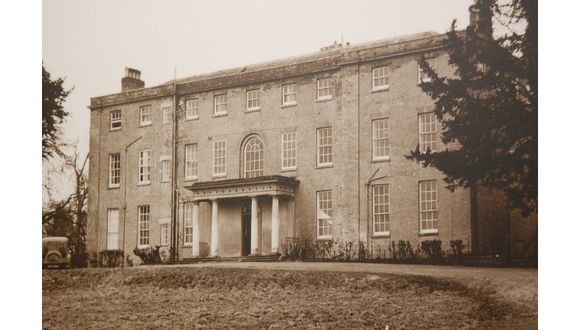 Abington Hall in 1938
Abington Hall in 1938
This was not the first evidence of ‘engineering’ on the site, with archaeological investigations in the area showing evidence of early Bronze Age flint working. However, it wasn’t until AD50-61 that the area was first mentioned, with the Roman Army under Ostorius avenging Boudicca’s Iceni attacks on St Albans and London by storming the Brent Dyke, which ran through what later became the woods at Abington Park. The name itself stems from the 5th Century, when it was named as the ‘Farm of Abba,’ from a common Norse name.
The first mention of a house on the site came somewhere between 1042 and 1066, owned by a wealthy Saxon thane called Ulwin. With the Norman Conquest of 1066, the estate including ‘Abintone Hall’ were given to Aubrey De Vere, Earl of Oxford, apparently for his support against the uprising of Hereward the Wake on the nearby Isle of Ely.
The Earls of Oxford continued to own Abington Hall (aside from short periods when they fell out of Royal favour, such as during The Wars of the Roses) until 1578, when it was bought by Robert Taylor of Babraham.
This original Hall comprised of just one large room, around 15m long and open to the rafters, but this was rebuilt around 1599 and subsequently sold to John Spencer. This was the beginning of Abington Hall as it is now, with the next 300 years seeing the estate passing into the hands of several different owners, including Lord Compton, Mr John Bennett, Thomas and, later, Maximillian Western, Riga merchant Mr Pierson, banker John Mortlock – who rented the Hall to various tenants - JJ Emerson and, finally, in 1929, Julius Bertram.
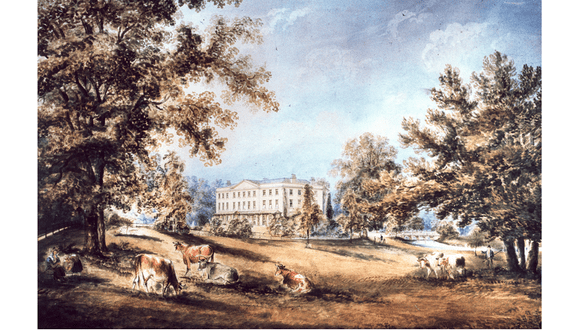 Abington Hall circa 1750
Abington Hall circa 1750
This 330-year period of development included the incorporation of a three-storey building of nine bays and Roman Doric columns into the substantially rebuilt Hall of 1716.
However, by 1935, the Hall was unoccupied before being taken over by the British Military for accommodation in 1939. With the end of the Second World War, Abington Hall - like many other estates across Britain – was sold, as the cost of upkeep became too much for many of the great families who had previously held these lands over the centuries.
Abington Hall and TWI
The British Welding Research Association (BWRA) stepped in and bought the Hall in 1946. The original 40 staff has increased to 125 by 1958 before, in 1968, BWRA and the Institute of Welding joined to form The Welding Institute in order to serve industry better as “a single voice for welding technology.” The BWRA would later become what is today’s TWI Ltd, dedicated to serving the needs of our Industrial Members across the world.
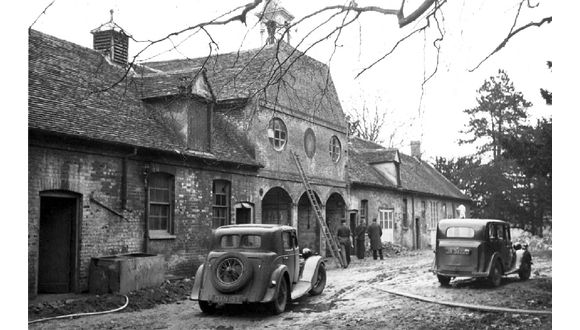 The stables at Abington Hall
The stables at Abington Hall
Abington Hall and the surrounding area continued to be used by TWI even as offices and laboratories were opened around the world. The site in Abington was redeveloped with three new buildings that won an award from The Royal Institute of British Architects (RIBA) and, around this time, Abington Hall stopped being used by the company on a day-to-day basis.
TWI is now determined to restore this piece of heritage so it can be part of a vibrant and forward-thinking future for the site and surrounding area.
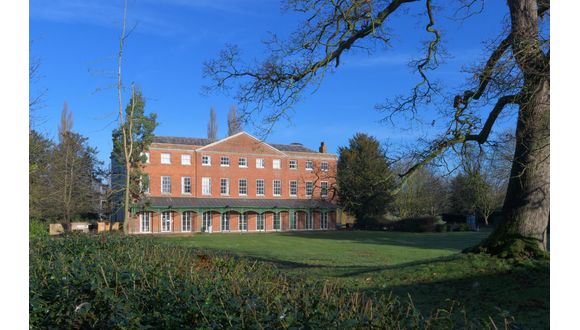 The rear of Abington Hall in 2022
The rear of Abington Hall in 2022
Redevelopment Plans
The planned redevelopment of the Hall include both internal and external repair and refurbishment, including paint cleaning and reapplication, window repair and decoration and new fencing and landscaping for the surrounding estate.
In addition, there will be new configurations for the lift and washrooms to improve user amenity and the installation of showers for those who cycle to the site as well as kitchenettes, a new shared reception area and a breakout space.
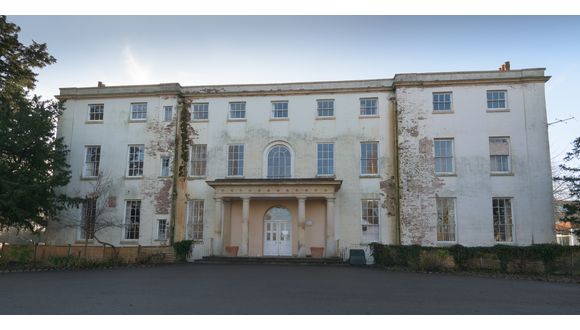 Abington Hall prior to refurbishment, 2022
Abington Hall prior to refurbishment, 2022
The £1.6 million construction will also aid sustainability by improving the thermal and acoustic properties of the building with improved windows and doors, a new heating system and upgrades to insulation wherever possible.
Local Enterprise Partnership (LEP) funding will aid job creation for the refurbishment plans as the Hall is adapted to provide a flexible space for multiple end users on a floor-by-floor basis.
Speaking on the redevelopment plans, Peter Wyld, Associate Partner, Building Consultancy, Carter Jonas said, “Abington Hall has a fascinating history, and we are pleased to be working with the TWI team on this significant project to upgrade it. Once complete, it will offer modern office space and contemporary facilities whilst retaining the grandeur and elegance of its past. Having considered the functionality of the building and how it will be used in the future, we aim to conserve the hall whilst securing its status as a vibrant and inspiring commercial space. It has taken a great deal of planning and strategy to mobilise the project to the stage where contractors are appointed, and this moment is very special for all involved.”
TWI’s Commercial Operations Associate Director, Warren Bath explained, “TWI is investing £1.6m into the refurbishment of Abington Hall, an important historic landmark for Cambridgeshire and the company. This newly refurbished space will be purpose built to facilitate scaling companies and support the growth of the life science hub. We are extremely pleased to be partnering with the Cambridgeshire & Peterborough Combined Authority (CPCA) and Carter Jonas to realise our vision.”
We will bring you updates as the redevelopment progresses during 2022.